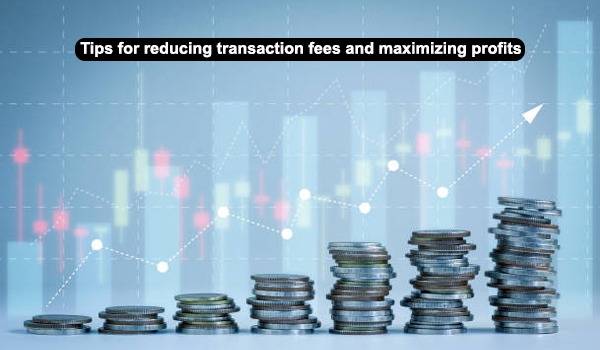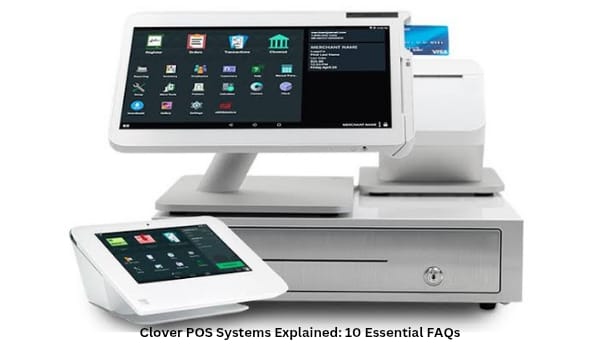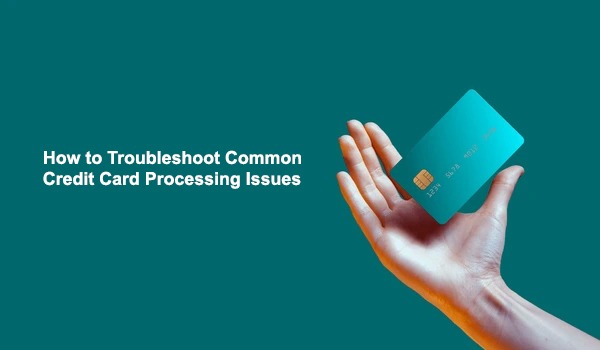
Introduction
Transaction fees may seem like a small nuisance, but they can add up significantly over time, cutting into your bottom line. Whether you are running a business, investing, or managing your personal finances, these fees are often unavoidable. However, with a strategic approach, you can minimize their impact and retain more of your hard-earned money. This guide takes a fresh look at practical, human-centered ways to reduce transaction costs and maximize profits.
1. Think Beyond the Numbers
Transaction fees are much more than numbers. That is, while you go about crunching numbers at the back end, sometimes you need to think further. For example, you pay these fees for whatever reason. Do they attach to convenience and speed? Or perhaps a lack of better options? You'd start to get some ideas once you ask those questions.
First and foremost, consider how you use finances. Are you the one who frequently uses a credit card to make small purchases which ought to have been done on cash? Are you actually using legacy payment methods purely out of habit, versus necessity? Sometimes the step to cut costs has its beginning with changing how we think about transactions.
2. Choose Payment Platforms Wisely
Not all payment processors are the same. A lot can depend on what platform you use when it comes to your fees. Be that business owner deciding which point-of-sale system is the best fit or a digital wallet individual choosing their first wallet, research is needed.
- For businesses: Look for payment processors that have a tiered pricing model or volume discounts. For instance, some providers will reduce their fee as your transaction volume goes up. Don't forget to look for any extra charges, such as a chargeback fee or fees for international transactions.
- For individuals: Select a service that matches your spending behaviors. If you do more online shopping, then something like PayPal or Google Pay will save you money in fees.
Remember, loyalty to a single provider isn’t always the best strategy. Periodically evaluate rates and services to ensure you're maximizing value.
3. Art of Effective Negotiation
Many people underestimate their ability to negotiate fees. Service providers, especially banks and payment processors, are often willing to lower rates to keep your business. Here’s how to approach negotiations effectively:
- Do your homework: Collect information on your transaction history and compare offers from competitors. Use this as leverage.
- Be persistent: If the first representative can't help, ask to speak to someone with more authority.
- Think long-term: Providers may offer better deals if you agree to a long-term contract or commit to higher transaction volumes.
Negotiating might feel awkward at first, but the potential savings make it well worth the effort.
4. Leverage Technology
In the age of digital, you find no shortage of tools meant to help you better manage your transactions. Applications and platforms can automate processes, consolidate transactions, and sometimes even eliminate some fees altogether.
- For international transfers: Services like Wise (formerly TransferWise) or Revolut offer competitive exchange rates and low fees compared to traditional banks.
- For domestic payments: Peer-to-peer platforms like Venmo or Zelle often allow fee-free transfers within certain limits.
By incorporating technology into your financial routine, you’ll save both time and money—a win-win situation.
5. Simplify and Consolidate
Sometimes, less is more. Consolidating your transactions can lead to substantial savings, especially if your provider charges flat fees per transaction.
- In investing: Instead of making frequent small trades, save up and execute larger trades less often. This approach reduces the number of commission fees you’ll pay
- In business: Batch payments to vendors or suppliers whenever possible. Many payment platforms charge a per-transaction fee, so fewer transactions mean fewer fees.
Consolidation not only saves money but also simplifies record-keeping, making it easier to track your expenses.
6. Be Smart About International Payments
If you frequently conduct international transactions, you probably know what it feels like to deal with currency conversion fees. They can be pretty hefty, but there are things you can do to keep them to a minimum.
- Use multi-currency accounts: Keeping funds in various currencies allows you to avoid conversion fees when dealing with foreign clients or suppliers.
- Shop around for exchange rates: Banks are not generally the best for currency conversion; you can actually get better conversion rates online using OFX or CurrencyFair.
- Beware of Dynamic Currency Conversion (DCC): It allows you to pay abroad in your domestic currency while you are on holiday, but the convenience does come with a price: high transaction fees. And, statistically speaking, more often than not, the smart fiscal decision is to pay in a local currency.
A Little Research Goes A Long Way In Avoiding Unnecessarily Costs.
7. Reconsider Your Investment Approach
For investors, fees can make a significant difference in returns over the long term. Whether buying stocks or managing a portfolio, keeping costs low is of paramount importance.
- Invest with low-cost platforms: Consider using brokers that do not charge commissions or charge very low expense ratios for mutual funds and ETFs. Some popular options include Robinhood and Vanguard.
- Opt for passive investing: Actively managed funds often come with higher fees. Passive options like index funds or ETFs are typically more cost-effective.
- Reinvest dividends wisely: Some platforms charge fees for reinvesting dividends. If this applies to you, consider taking dividends as cash and reinvesting them manually.
By focusing on long-term, low-cost strategies, you’ll keep more of your investment returns.
8. Turn Fees Into Rewards
Not all fees are bad; some can be offset by rewards or cashback programs. For example, many credit cards offer perks that effectively negate certain transaction costs.
- Cashback programs: Some cards offer cashback on everyday purchases, helping you recoup part of your spending.
- Maximize rewards categories: If your card offers bonus points for specific categories like groceries or travel, plan your spending accordingly.
- Look for fee waivers: Most cards will waive annual fees if you spend enough or sign up during promotional periods.
9. Be Vigilant and Adapt
Financial landscapes change quickly, and what works today might not work tomorrow. Regularly reviewing your fees and financial practices ensures you're always getting the best deal.
- Audit your accounts: Look for surprise fees or changes to your provider's terms. Banks and platforms sometimes update their fee structures without much warning.
- Be willing to change: If a better option is available, switch providers without hesitation. Loyalty is great, but not to the point of hurting your wallet.
- Educate yourself: Keep abreast of new tools, platforms, and strategies to reduce fees. Knowledge is your best asset.
10. Enable Your Team
You must enable your team, who handle all business charges on a day-to-day basis. Instruct employees regarding all forms of cost-saving that might help in managing fee operations.
- Establish policies: Develop and implement which channels should be used to execute a payment and what mediums must be avoided.
- Train staff: Educate members to recognize unnecessary fees, allowing them to avoid all costly operations.
- Check the implementations: Check transactions occasionally so that your rules do not get breached.
A unified approach makes it easier to keep costs low and profits high.
Conclusion
Transactions cost money, but you do not have to lose it all. It's possible to adopt a proactive and thoughtful approach that will help you reduce the costs and save money in your pocket. The strategies that follow are suitable for any business, investor, or person who needs to control their personal finances. Take charge of your transaction fees today and let your profits soar.









